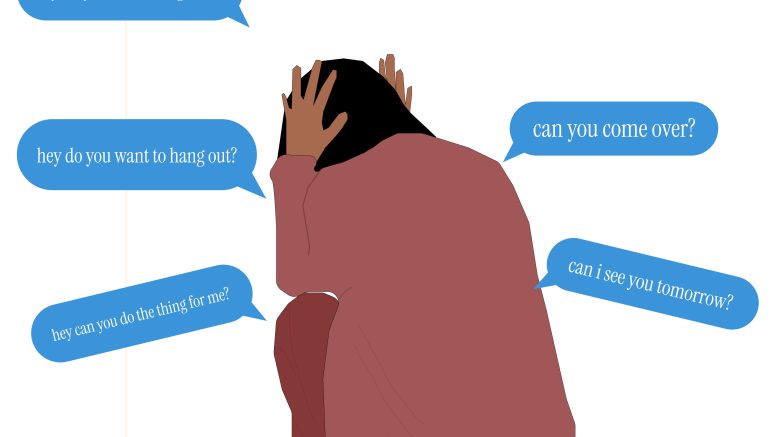I am a chronic people-pleaser. For as long as I can remember I have been relentlessly trying to make people
around me like me or make them content.
I have always bent over backwards to make people happy, even if it makes me miserable. Even as a little girl, I
tried to be polite and get people to like me, even if they didn’t like me or were terrible to me.
To all my people-pleasers out there, this article is for you. Have you ever felt like people are staring at you,
picking apart everything that’s wrong with your personality, appearance and intelligence? Because I sure have.
It is difficult to get over the notion that not everyone is looking at you in a world so focused on condemning
everyone for everything that they do online or in person. If you’ve ever felt like everyone is watching your every
move and you try to change yourself so they’ll like you, I’m sorry to say you may be a people-pleaser.
Have you ever felt the itch to ask the people around you if they hate you every other day because your
insecurities seem too large for you? Well, you may also be a people-pleaser. Every time I feel like someone
hates me, I try to appease them even more, it’s like a personal sense of torture and challenge to get them to
like me.
If you’ve ever felt like you need to appease people, so they like you, you have my sympathies because I’ve
also been there, and I know how it feels to feel less than.
My question is why do we people-pleasers try to fill the void of insecurity by trying to do things for people who
don’t appreciate it, don’t like us or stretch us thin instead of just saying no?
Have you ever felt like every social outing is clouded with doubt and unhappiness or the fear you just don’t
belong in this room of happy people having the time of their lives? Because I sure do!
In The Guardian, an article titled, “‘The liberating truth is: they’re probably not thinking about you’: Oliver
Burkeman on how to quit people-pleasing,” Burkeman stated, “this same overinvestment in other people’s
emotions meant I was always saying yes to things I should really have declined, because I flinched internally at
the thought of the other person feeling crestfallen. And that I rarely enjoyed myself fully at social gatherings,
owing to a deep suspicion that the others present, however happy they appeared, might secretly only be
spending time with me reluctantly.”
I’ve always put so much at stake in how other people feel instead of valuing how saying yes to something I
don’t want to do makes me feel. As a habitual people-pleaser, I’ve always tried to attempt to go into remission
but can never seem to get there. I always worry that people will start to hate me because of me saying no.
I always forget that saying no is a complete sentence to things you don’t want to do. Despite me knowing this I
cannot stop this constant cycle of people-pleasing.
Researchers from Psych Central note that people-pleasing tendencies can be linked to a trauma response or
emotional dependence.
Breaking these cycles is hard and tiring. Some of the aspects I’ve been trying to improve on, to move on from
the emotional dependence, are ignoring other people’s perception that they think they know who I am and
trying to separate what I want from other people’s desires.
For all my people-pleasers, I see you. I can tell when you don’t want to do something, and I can tell when
you’re forcing yourself to do something. If I can leave one message with you guys from this article, it is that
other people’s emotions and perspectives are not your problem. Focus on your happiness and what you want
to do, not what other people expect from you.



